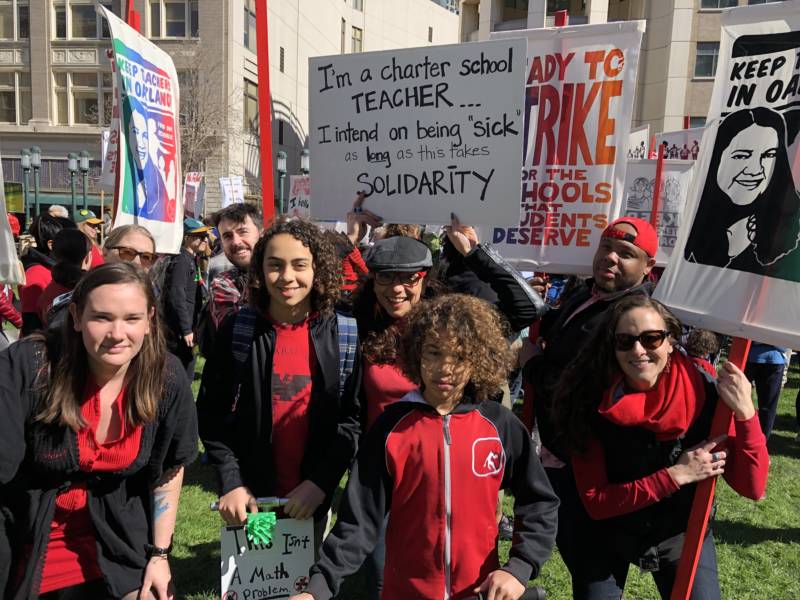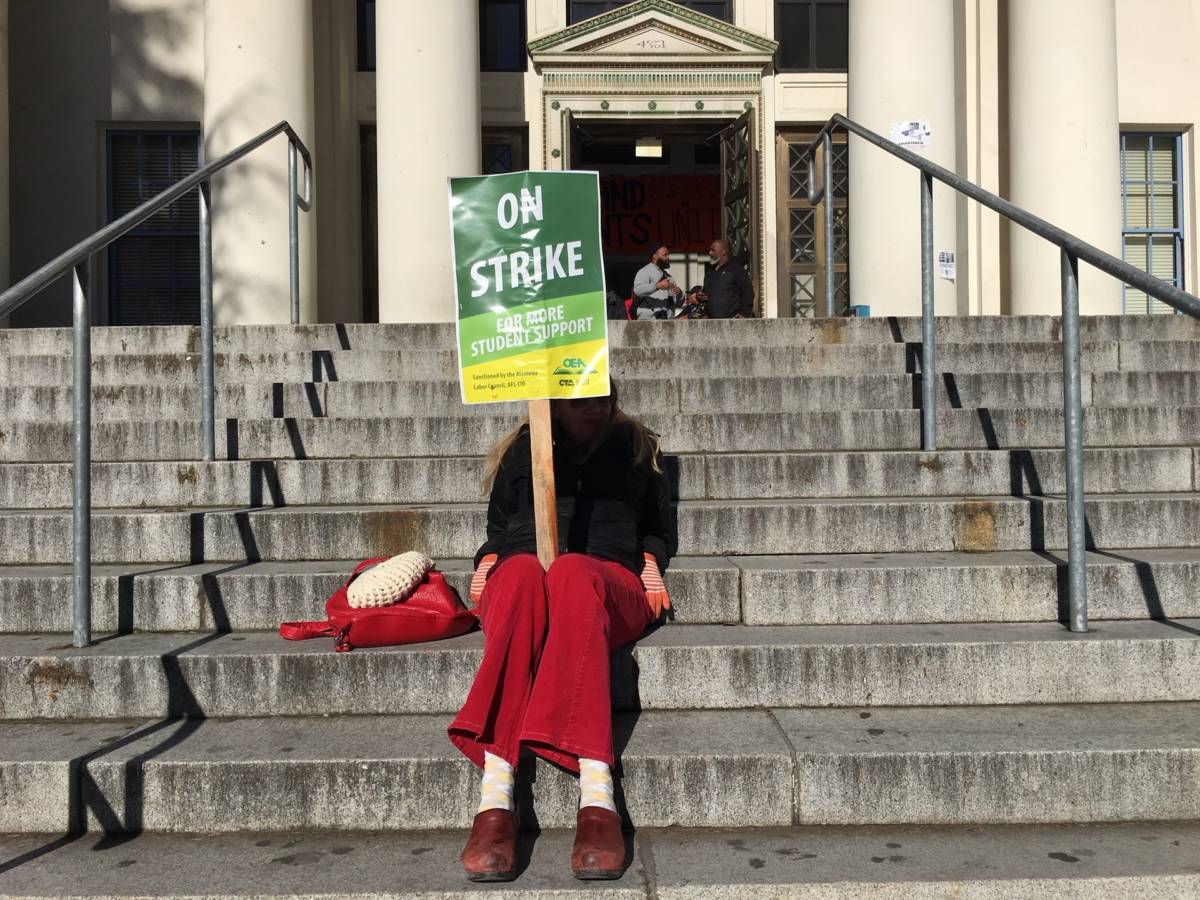It's a sentiment heard loudly and clearly on the picket lines of striking teachers throughout Oakland and in the organizing playbook of their union: charter schools are bad news for Oakland's teachers and students.
Despite Tensions, Some Oakland Charter School Teachers Join Picket Line in Solidarity

"If the school district really can’t afford to keep the lights on in its own buildings, why has our board been complicit in rampant charter school growth ... and also awarding them sweetheart leases on formerly public buildings?" wrote Oakland Education Association president Keith Brown in a recent San Francisco Chronicle opinion article.
Yet, as Oakland's districtwide teachers strike stretches into its fifth day, with no end in sight, a number of charter school teachers, who are not on strike, are joining the picket lines in solidarity and making the case that they face many of the same problems and challenges.
Among them is Nicole Solis, a teacher at an East Oakland charter school, who asked that her school not be named because of ongoing labor negotiations. She and five other colleagues have called in sick for multiple days to join teachers on the picket lines.
Solis says her school was founded by a group of parents in the community — not by outside millionaires, as the union often claims — who wanted to create a decent educational option for their kids.
She is one of 20 teachers in her charter's union and says that, much like district teachers, they are also overworked and underpaid, and pushing for raises and more classroom resources.
"The things that OUSD teachers are fighting for are things that we're also fighting for within the charter school community," Solis said, who has joined district teachers for every day of their strike, so far. "And I really think the only way we're going to solve this is by coming together as teachers."
Charter schools have exploded in Oakland in the last two decades. There were less than 10 of them in the city 20 years ago, attended by just over 1,000 students. Last year, more than 16,000 students attended 34 charter schools, one of the highest rates of any school district in California.
In that same time period, enrollment in district-run schools dropped sharply, by a whopping 45 percent. The roughly 17,000 students that left the district took with them critical per-pupil funding, greatly exacerbating the district's already tenuous financial situation.
One 2018 analysis by the policy group In the Public Interest found that charter schools diverted more than $57 million per year from Oakland Unified, amounting to roughly $1,500 less in funding for each student in the district.
These criticisms were echoed repeatedly during last Friday's teachers rally in DeFremery Park in West Oakland, when one speaker after another railed against Oakland's charter schools and the corporate outside interests they say are behind them.
After the rally, teachers marched down Adeline Street to demonstrate in front of the offices of Go Public Schools, an organization that has been supportive of charter school growth and school choice in Oakland.
But many families in some of Oakland's most underserved communities say charters are sometimes the only viable alternatives to the low-performing district schools their children would otherwise have to attend.
And charter school teachers, like Solis, say it's unfair and misguided to single them out. Reactions to her presence on the picket line have been mixed, she says.
"We've had all kinds of reactions, everything from 'Thank you so much. Solidarity. Can I take a picture?' to also being yelled at, taunted, saying,'This is not for you, get out of here charter school teacher,"' she said.
Nelda Kerr, who teaches with Solis, also called in sick on Thursday, Friday and Monday to join striking district teachers. She said she's fighting for pretty much the same things as they are.
"Oakland Unified School District teachers are fighting for a raise in pay, smaller class sizes and an increase in services to students," she said. "That is the exact thing that I need for my students, that I need from my own salary to be sustainable."
